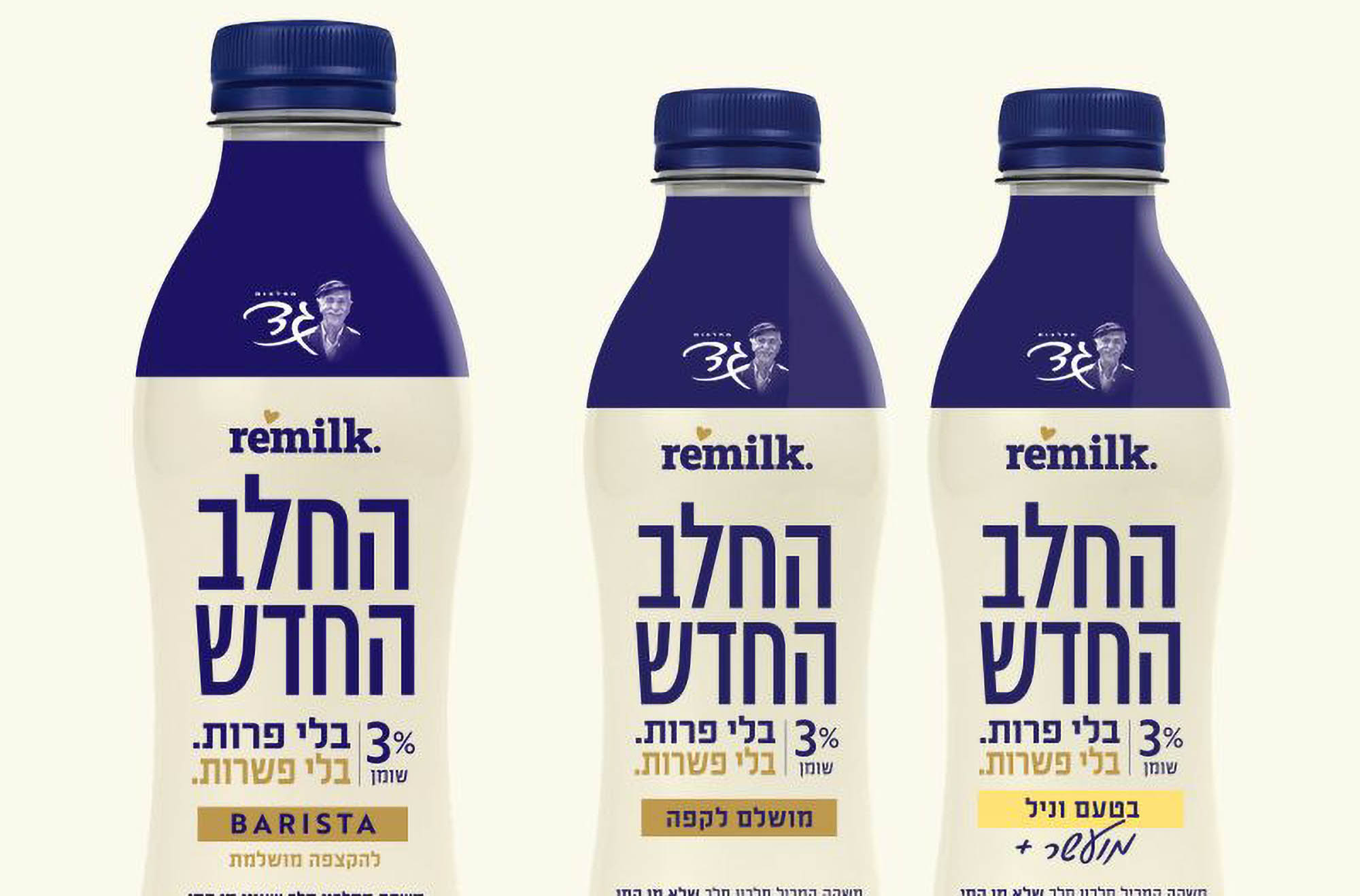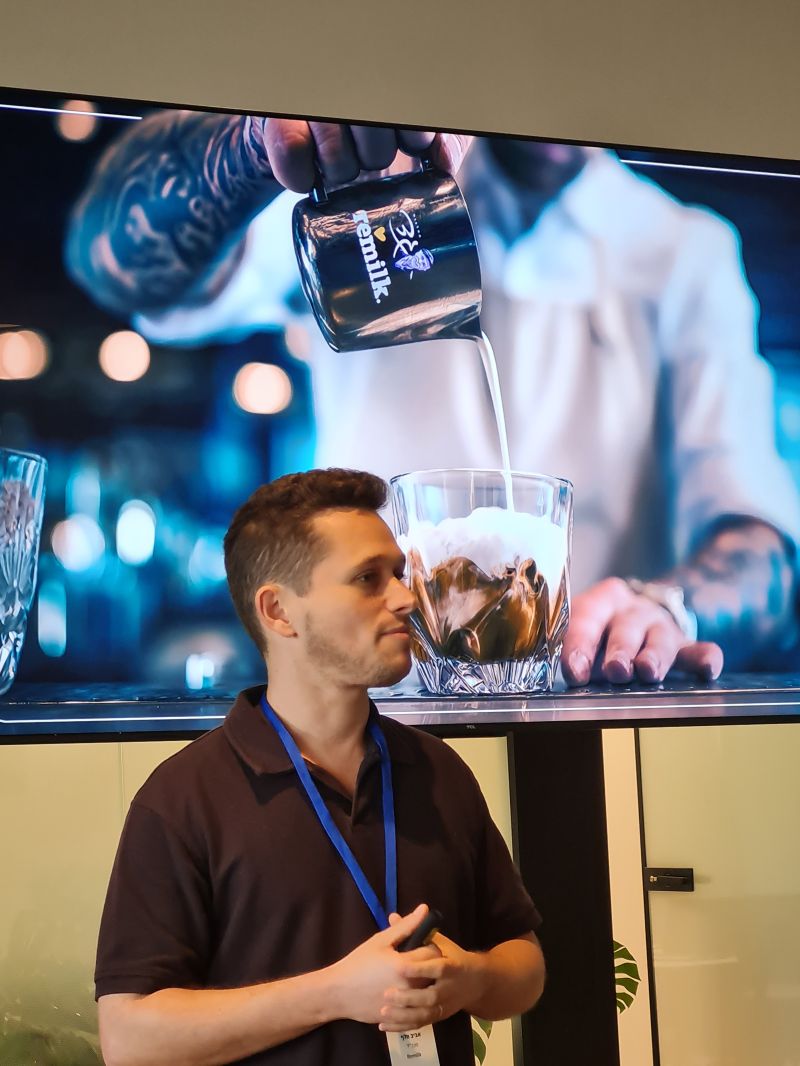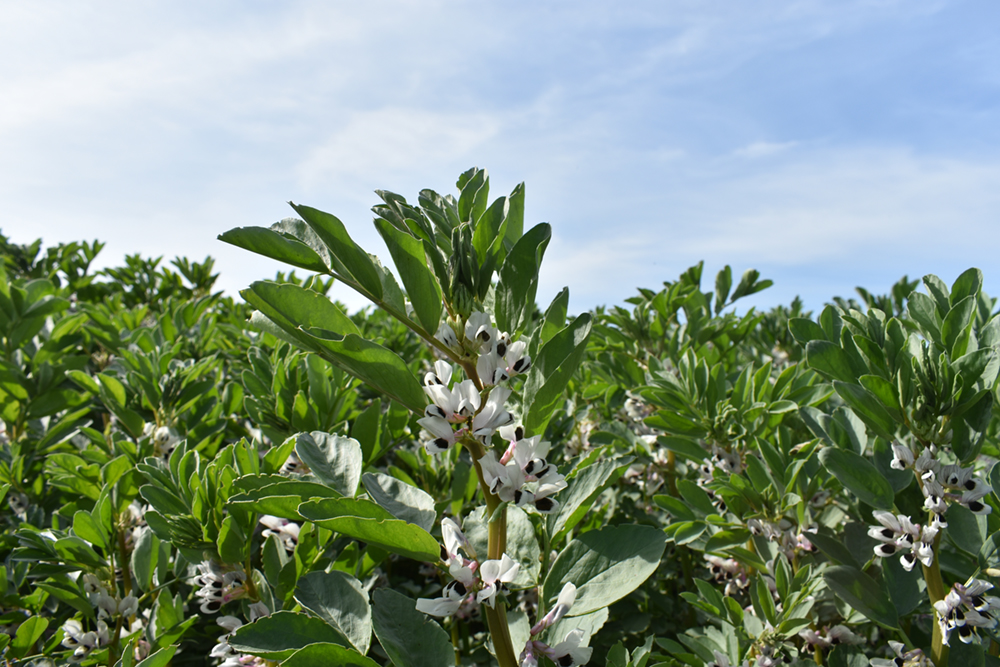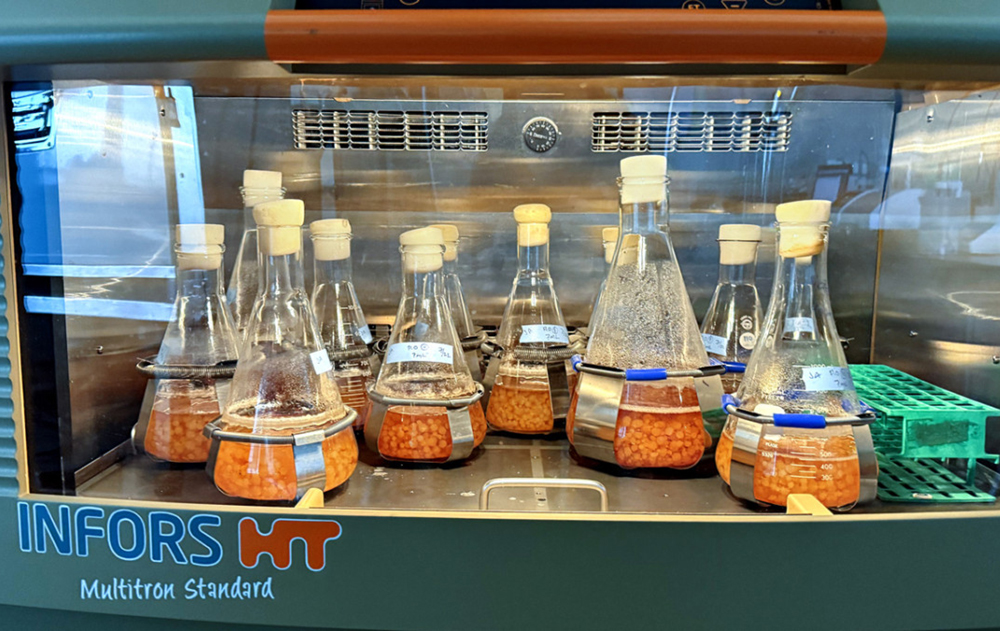

Remilk and Gad Dairies launch ‘The New Milk’ – Israel’s first cow-free dairy milk
In a milestone moment for global food innovation, Israeli food-tech pioneer Remilk and Gad Dairies, one of Israel’s most established dairy brands, have officially launched The New Milk – the world’s first dairy milk made entirely without cows.
Five years in the making, the partnership brings together cutting-edge biotechnology and generations of dairy tradition to produce milk that is identical in taste, texture, and nutrition to conventional dairy but made without animals. The New Milk is now being poured in cafés, restaurants, and hotels across Israel and will reach supermarket shelves in January 2026, with additional dairy products to follow.
“This was science fiction just a few years ago,” commented Aviv Wolff, Co-founder & CEO of Remilk, in an emotional message to employees. “Five years of failed experiments, of nights that we often asked ourselves if this is really possible. Maybe it really is science fiction. And here we are.”
The New Milk is based on precision fermentation technology developed by Remilk since its founding in 2019. The company produces real milk proteins by teaching microorganisms to express casein and whey – the same core proteins found in cow’s milk – without involving a single animal cell. These proteins are then combined with water, fats, vitamins, and minerals to create dairy that is chemically and nutritionally identical to conventional milk.
The collaboration marks a world-first for the dairy sector, pairing Remilk’s patented fermentation technology with Gad Dairies’ legacy of craftsmanship. “Our collaboration with Remilk represents a global breakthrough for Gad – milk born from advanced science and technology, yet rooted in decades of culinary tradition,” said Amir Aharon of Gad Dairies. “The New Milk proves that it’s possible to combine premium quality, sustainability, and industrial innovation without sacrificing taste. It’s a historic milestone where generations of dairy tradition meet groundbreaking technology.”
The New Milk is lactose-free and cholesterol-free, fortified with calcium and vitamins, and contains 75% less sugar than regular milk. It is kosher-pareve, meaning it can be consumed after meat meals, and is designed to perform like cow’s milk in every respect – from steaming to foaming to flavor.
Initial product launches include a Barista Milk for the foodservice sector, which is already rolling out across cafés and restaurants, alongside two retail-ready products – a daily-use milk and a vanilla-flavored milk – that will follow next month.
When interviewed by Protein Production Technology International in 2023, Wolff described the philosophy that guided Remilk from the beginning. “We understand people are not ready to give up the foods they love. We also understand the way these staple foods are made is destructive to our planet and animals. Our approach is therefore simple: we change the process, not the food,” he said.
In that same interview, Wolff explained Remilk’s scientific approach in layman’s terms: “We turned to nature for the recipe to produce dairy, and utilized the age-old fermentation method with a modern twist to recreate cowless dairy proteins that are identical to their traditional counterparts. To put it simply, we copied the genetic sequence or ‘milk-making recipe’ from a cow, inserted it into yeast, and transformed these tiny, one-celled organisms into a milk-protein-making factory.”
That scalable process – now realized at industrial level – is what enables The New Milk to deliver the sensory and functional performance consumers expect from dairy. “Our proprietary process is extremely scalable, which enabled us to shift from lab-scale to commercial-scale production,” Wolff said in 2023. “We believe that positions us in a unique place in our industry.”
Ahead of the launch, Remilk and Gad Dairies commissioned a national survey with the Geocartography Knowledge Group to gauge Israeli attitudes toward dairy and alternatives. The findings reveal that 92% of Israelis still consume traditional dairy milk, but 61% also use plant-based substitutes, with 56% combining both. However, more than half (55%) of those surveyed said that existing substitutes “don’t taste good enough.”

Among kosher consumers, half said they would happily drink coffee with milk after a meat meal if a pareve milk that tasted like the real thing were available – exactly the opportunity The New Milk seeks to meet.
“The survey clearly shows that taste is the deciding factor in adopting new dairy products,” said Wolff. “Consumers are open to innovation, but they demand a true milk experience – in flavor, texture, and functionality.”
Founded in 2019 by Wolff and biochemist Dr Ori Cohavi, Remilk was built around a simple but ambitious goal: to decouple dairy production from livestock while keeping everything consumers love about milk intact. The company has since raised more than US$150 million in funding, achieved regulatory approvals from the U.S. Food and Drug Administration, Israel’s Ministry of Health, and other agencies in Canada and Singapore, and constructed a large-scale production facility in Denmark to supply partners worldwide.
Reflecting on the company’s journey, Wolff told his team this week, “Every time that something failed, we picked it up again. Each time that something needed fixing, we fixed it. Because of each and every one of you who poured your ‘all’ into this enterprise, we built this together.”
The launch has been hailed as a breakthrough not only for Remilk but for Israel’s entire food innovation ecosystem. “It took a few years – real innovation always does – but Aviv Wolff, Ori Cohavi, and team have delivered: real dairy made without cows, produced at industrial scale and finally available for the end consumer,” said Zaki Djemal, Founder and Managing Partner at Fresh Fund, one of Remilk’s early investors. “What began as a crazy, almost outlandish idea is now being poured in coffee shops and served across Israel, with retail around the corner. This is a watershed moment for the category and a major milestone for the Israeli deep-tech ecosystem.”
In his 2023 interview, Wolff also outlined the environmental promise of precision fermentation, noting that replacing livestock with microbial fermentation drastically reduces resource use. “Replacing a 600kg animal with one-celled yeast means precision fermentation requires a fraction of the resources: around 1% of the land and 4% of the feed, and less than 5% of the water,” he said. “The production process emits a fraction of the greenhouse gases.”
He argued then – as the company demonstrates now – that animal-free dairy is about building a food system capable of weathering global shocks. “Climate has an enormous impact on food production, and food production has an enormous impact on climate change,” he said. “Precision fermentation enables us to create a significantly more resilient food system, relying on fewer resources, unaffected by weather, and when it reaches its full potential – at a cost that is extremely affordable to populations around the world.”
That vision has now been realized in the form of The New Milk – the first commercially available cow-free milk made from real dairy proteins.
For Wolff, the moment represents both an endpoint and a beginning. “I imagined this moment when I was a little kid, when people would ask me what I want to do when I grow up,” he said. “I didn’t know exactly what I would do, but I did know that this is how it would feel – that moment when we understand that we have done something really big.”
As Remilk and Gad Dairies prepare to expand The New Milk nationwide and into export markets, the launch cements Israel’s reputation as a world leader in alternative protein innovation – and signals a new chapter in dairy’s evolution.
“If in the past five years we turned science fiction into reality,” Wolff told his team, “what will we achieve in the next five? The world won’t be the same. Today we proved that it is possible.”
If you have any questions or would like to get in touch with us, please email info@futureofproteinproduction.com

.png)






